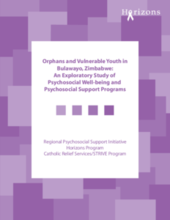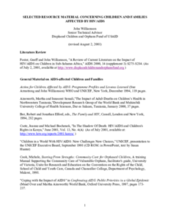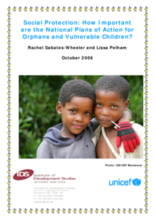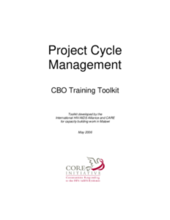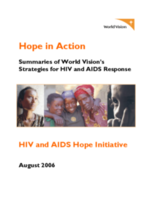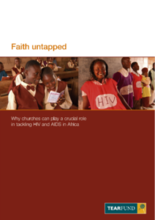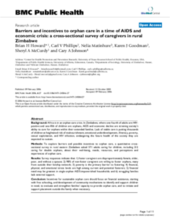Displaying 301 - 310 of 414
Investigates psychosocial well-being and psychosocial support services for youth affected by HIV/AIDS in Zimbabwe. Includes summary of key findings and implications for programming and research.
An updated list of literature and bibliographies concerning children and families affected by HIV/AIDS around the world. Most of the resources are focused on sub-Saharan Africa.
This document sets out the thinking and plans regarding the use and management of Technical Service Organizations (TSOs) within the CORE Initiative project for the prevention of OVC and HIV among youth in Uganda.
A literature review of HIV vulnerability in Vietnamese children. Includes analysis of current gaps in related research.
This briefing paper emerges from a review of 14 national plans of action (NPA), or in the absence of a NPA, outputs from the rapid assessment analysis and action planning (RAAAP) work for orphans and children made vulnerable by HIV/AIDS. The purpose is to analyse the way that issues of social protection are incorporated into these plans and to highlight areas within the plans where social protection activity may be needed to achieve stated outcomes. Annex 3 summarises, country by country, the social protection content of each NPA.
A toolkit to support community based organizations in developing countries to design, manage and learn from their projects in a systematic way. It focuses on building understanding of the ‘project cycle’, and is primarily targeted for organizations working on issues related to HIV and AIDS.
Summarizes World Vision’s strategies for key areas of HIV/AIDS response.
An assessment to determine MGLSD and District Management and operational capacity needs in providing leadership, coordination, and monitoring and evaluating the national response to OVC and AB/Y in Uganda.
Contains a set of forward-leaning recommendations for churches and the donor community. Also contains an analysis of the role of faith-based groups in the response, specific case studies, the potential to do more on the ground, and challenges faced by churches.
A survey of caregivers designed to assess barriers and incentives to fostering in rural Zimbabwe. Suggests that incentives for sustainable orphan care should focus on financial assistance.

